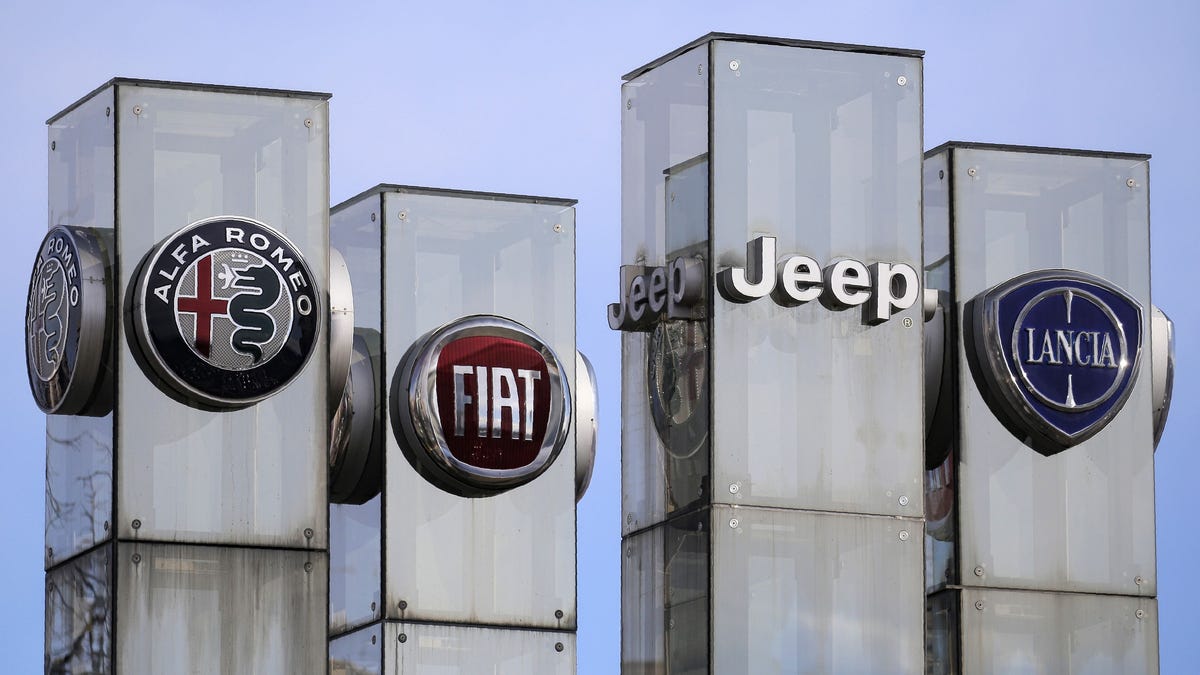Volkswagen isn't saying no to FCA merger idea
Then again, it's not exactly saying yes, either.

Fiat Chrysler is like that last person at the bar, trying to find somebody -- anybody -- to take home. After being rebuffed by at least one high-profile suitor, there's one other person lingering around the bar that hasn't yet walked out the door.
Volkswagen is not ruling out merger talks with Fiat Chrysler, according to VW CEO Matthias Mueller, who spoke at an earnings press conference this week. "I am not ruling out a conversation," Mueller said, according to Reuters. "It would be very helpful if Mr. Marchionne were to communicate his considerations to me, too, and not just to [the media]."
While that may sound like Volkswagen is willing to head to the table, the VW Group CEO is sending out mixed messages. Mueller told Reuters last week that Volkswagen is "not ready for talks about anything... we have other problems."
Does FCA need a merger? No. But it wouldn't hurt from a financial standpoint.
A plug in search of a port
Fiat Chrysler has been hot on the idea of a merger for more than a year now. The reasoning is simple -- merging allows companies to share the costs of developing new platforms and new methods of propulsion, the latter of which can get very costly as automakers start investing in electric vehicles.
In terms of what's been made public, FCA has lagged on delivering electrification. The battery-electric Fiat 500e is only on sale in states with zero-emissions regulations, limiting its reach. FCA CEO Sergio Marchionne has said in the past that his company loses more than $10,000 for each 500e sold, which is also an issue.
It's reported that Chevrolet is eating similar losses with its Bolt EV in order to advance the industry to a point where EVs can be profit centers.
That's not to say FCA only cares about building Hellcats and Wranglers. It recently released the Pacifica Hybrid, a first-of-its-kind plug-in hybrid minivan that promises family-friendly efficiency. FCA clearly understands which way the market is moving, but it's not going to mortgage the whole farm to beat the industry to the punch.
Thus, a merger would make sense, and teaming up with Volkswagen would be a boon to its development efforts. Volkswagen already has a dedicated battery-electric vehicle platform, and it plans to release some 30 different EVs across its various brands within the next decade. We've already seen hints at VW's future with its ID and ID Buzz concepts.
Unlucky in love
While Volkswagen would be an excellent catch, FCA originally set its eyes on the frenemy it's lived near for decades -- General Motors. After throwing the idea out there, GM's board quickly shot down the idea, but Marchionne has not given up hope.
After news broke that GM would sell its European subsidiary Opel to PSA, which includes Peugeot and Citroën, Marchionne leapt back into the fray. "I may shamelessly try knocking on the GM door again, or any door, if I thought it was a good thing to do for the business, without even blinking," Marchionne said at the Geneva Motor Show, according to USA Today.
Even if GM doesn't return Serge's late-night "u up" texts, it's not going to stop his determination to consolidate and lower costs. In April 2016, Marchionne mentioned that other potential suitors might include Volkswagen, Toyota and Ford. Ford immediately shot the idea down, and while Toyota has the cash and the know-how that FCA wants, it doesn't appear interested, either.
Volkswagen and Toyota constantly battle for the crown of largest automaker in the world, so neither really needs FCA. Mueller told Reuters as much, saying, "I am pretty confident about the future of Volkswagen, with or without Marchionne."
Whether or not Marchionne's efforts will bear fruit is yet to be determined. But with his tenure ending in two years' time, the bar lights are coming on and the bouncers are starting to shoo folks out the door. It may be up to his successor to get the job done.

